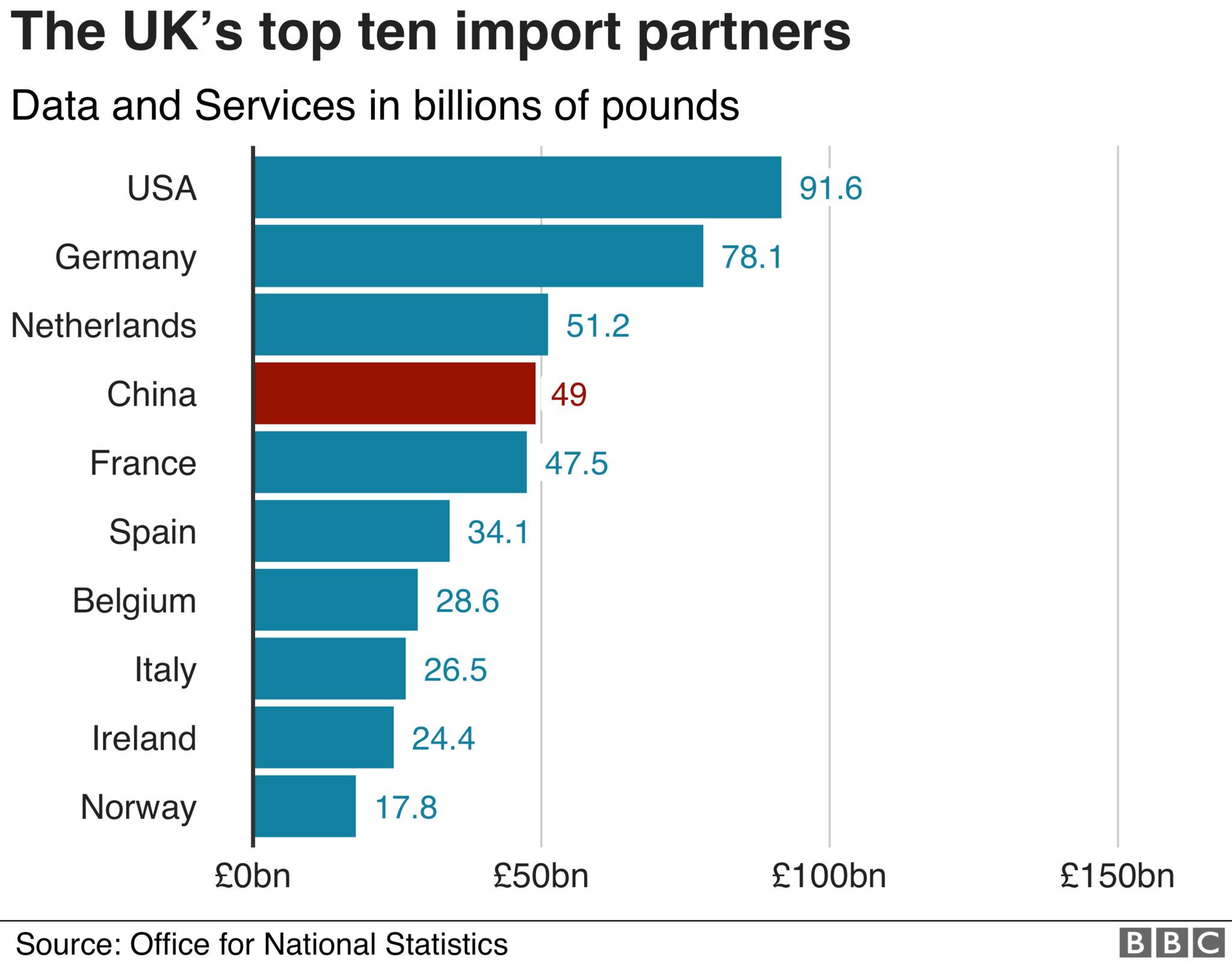A Small Town's Silent Crisis
It's a chilly night in Dean, just outside Ballarat in the heart of Victoria's potato country. The local town hall, which has seen generations of farming families through its doors for celebrations, concerts, weddings, and school speech nights, is now filled with a somber mood. These farmers and their families have come together to seek answers about an incurable disease that is devastating their community.
"The growth of Parkinson's across the world has been called a pandemic — it's the world's fastest-growing neurodegenerative disease," a visiting neurologist tells the crowd. "Many people are under the misunderstanding that it's a genetic condition. But for the most part, it appears to be mostly environmental."
Wesley Thevathasan, a neurologist who has been diagnosing and treating patients with Parkinson's disease for over a decade, many of them from rural communities like this one, lays bare the facts.
"I'd say that farmers are overly represented in the cohort of patients I see with Parkinson's disease," Dr. Thevathasan says. "And this is not surprising because we know that rural living and potential exposure to pesticides is a likely risk factor for developing the condition. All sorts of agents have been implicated, but the evidence is strongest for paraquat."
Dr. Thevathasan displays a slide that reveals farmers who have used this chemical are at 2.5 times the risk of developing Parkinson's disease. A young farmer in the back raises his hand and inquires about the basis of this risk assessment, particularly regarding the frequency of exposure. Dr. Thevathasan clarifies that the greater the exposure, the greater the risk.
A Community Under Siege
The concerns are palpable. A mother raises her hand and asks if there are ways to mitigate the risk after prolonged exposure, or if it's simply a matter of waiting and hoping. Dr. Thevathasan's response is straightforward: "What's done in the past is done. The only thing that you can do is be proactive about your future exposures and try and limit them… anything you can do to be sensible is better than nothing."
For some, it's already too late.
As the slides depict the debilitating symptoms of the disease, one older farmer in the back sits quietly, all too familiar with the reality these symptoms represent. David Jolliffe, who has lived among the rolling green hills and acres of volcanic soil of this place all his life, was diagnosed with Parkinson's disease nine years ago. His life, once full of vigor, is now slowly being robbed by the disease.
David was once a strong, towering figure. But his gait has become sluggish, and he navigates through rows of crops with a precarious shuffle. Getting in and out of the tractor is an exhausting ordeal, and he can no longer sign his own name. He is part of a cluster of Parkinson's patients in this area, known locally as "The Davids Club." The ABC has found more than a dozen farmers from the area currently suffering from the disease.
"We've all got it, and we all got it about the same time. They're all farmers. So it must be a working man's disease." David says.
A Familiar Story of Exposure
David remembers being coated head-to-toe in chemicals during his childhood, when he would stand in the fields to guide planes spraying the crops.
"The plane would fly over your head, loop around and go back. I don't know what chemical they used, but when we were walking across the paddock, there were moths and things flying up — and when we were walking back they weren't. So whatever they'd sprayed it with seemed to work pretty quick."
As years passed, David took on the role of main sprayer on his family farm, using a variety of chemicals, including paraquat.
"I was probably more careful than average, but not overly worried about it." David says.
Not many of his generation were. Gloves and masks weren't even on the radar. With rudimentary equipment and limited resources, they made do with what they had.
These new "wonder" chemicals promised to increase yields, eliminate pests, and make their difficult jobs a little easier. But in retrospect, David fears they were also making him sick, and now, they could be threatening the next generation.
The Next Generation's Dilemma
Down the road in Tourello, David's nephew, Ben Myers, is in charge of spraying chemicals on his own family farm. Ben regularly uses paraquat.
"For some people, it is a crucial tool in the toolbox… Not everyone that uses paraquat ends up with Parkinson's, so you're rolling the dice." Ben says. "When you look at the group that it belongs to, it's very evident that it's a dangerous, harmful chemical. And it does talk about health precautions… but it basically puts all the onus back on the operator."
The Myers family has an extensive connection to Parkinson's disease. Besides his maternal uncle David Jolliffe, Ben has a cousin who has been diagnosed. His grandfather and great-uncle on his father's side both died of Parkinson's.
"Farmers are renowned for taking risks… and if there's no immediate consequences, you might not understand that you've hurt yourself in the long term." Ben says. "If you've got a blood nose straight away, or a rash came up, you'd be thinking about it then and there. But no-one really likes to think about their mortality in 20 or 30 years' time."
Ben's wife Katherine is constantly thinking about it.
"You know, you walk into the bathroom, and you see Ben's work clothes lying over the kids' bath. You think, 'Oh, I wonder if he went spraying in those.'" she says. "My grandfather ended up with mesothelioma from asbestos as a builder. This is no different to that."
Katherine believes farmers are being kept in the dark by those who stand to profit from the product.
The Contested Chemical: Paraquat
Paraquat is a highly effective broad-spectrum herbicide that allows farmers to target weeds resistant to other pesticides, like glyphosate. The toxic chemical is banned in dozens of countries, including the United Kingdom and China, but in Australia, it's still widely used as the active ingredient in 141 registered products.
It's classified as a schedule 7 poison, requiring a license to purchase. Over 10 million kilograms of the chemical were sold in Australia in 2022-23.
Paraquat was patented in the 1960s by a global agricultural chemical company now known as Syngenta, which still manufactures paraquat under the brand names Gramoxone and Sprayseed. Syngenta and its predecessor, Imperial Chemical Industries, have been fielding concerns about the chemical's link to Parkinson's disease for decades.
The company acknowledges that paraquat is a toxic chemical that should be used cautiously. However, the debate lies in whether its use causes neurotoxicity in the brain, which could contribute to Parkinson's disease.
Syngenta contends that no research has directly proven that paraquat exposure leads to Parkinson's disease. Phillip Botham, the company's lead scientist, continues to state unequivocally on its website that "there is no causative link at all between paraquat exposure and Parkinson's disease."
A Disingenuous Narrative
However, thousands of farmers in the US and Canada disagree and are suing the company, alleging they developed Parkinson's disease from paraquat use. Documents obtained through this litigation reveal a stark contrast between Syngenta's internal workings and the public narrative.
These documents show that the company has been aware since the 1960s that paraquat poisoning in animals can produce signs of neurotoxicity, including tremors, and that ingested paraquat can enter the human brain.
In 1975, a letter to the chemical's former distributor, Chevron, flagged potential "legal problems" resulting from "possible chronic effects" caused by paraquat.
Several scientists who spoke to the ABC about the research on paraquat say the company's argument about a causative link is disingenuous.
"Scientific proof would require us to do experiments on humans… expose them to different doses of pesticides, follow them up after different time periods, chop up their brains and look for causation. That's never going to happen," Dr. Thevathasan says. "[Instead], we have animal studies… and natural world observations. This is the same way that we've proven that smoking and asbestos cause lung cancer. So this is a perfectly reasonable way of approaching it."
The Science Behind the Controversy
Independent animal studies into paraquat's effects on mice gained momentum in the 1990s. A key finding emerged in 2002 when researchers from The Parkinson's Institute injected mice with paraquat and monitored brain activity for any loss in dopamine neurons — one of the hallmarks of Parkinson's disease. They found paraquat entered a part of the brain known as the substantia nigra, where it depleted dopamine and led to Parkinson's symptoms.
Deborah Cory-Slechta, co-author of this study, says Syngenta made its opposition to this finding clear from the outset.
"We would go to a scientific meeting to present our data, and it would typically be in a poster format, and the minute we were there pinning up the poster, the Syngenta folks would be there attacking the data." she told the ABC.
"That was pretty standard for them to do that."
The company continued to argue that paraquat did not deplete dopamine in mice. But behind the scenes, Syngenta scientists were conducting their own studies. When they discovered that paraquat did, in fact, cause cell loss in the brain, they kept the results concealed.
In a deposition for one of the US lawsuits in 2022, lead scientist Dr. Botham confirmed that the company did not publish any of their studies that replicated Dr. Cory-Slechta's findings, explaining that "it [was] simply a repeat of what [was] already in the science publications." He also confirmed that Syngenta did not report its findings to the US Environmental Protection Agency at the time.
"While they were trying to repudiate my studies, they in fact replicated them and found exactly the same thing." Dr. Cory-Slechta says. "So what they were saying publicly is totally inconsistent with what they were finding internally — the exact opposite."
Internal company briefings obtained through the US litigation outlined Syngenta's strategy around this time, which included publicly refuting critical scientific claims that it could not reproduce, and instructing its own scientists to avoid measuring paraquat levels in the brain.
In a statement to the ABC, Syngenta said it had not avoided pursuing any research necessary to assess the safety of its product:
"Syngenta has not avoided measuring paraquat levels in the brain or pursuing any other needed research to assess the safety of paraquat. In fact, Syngenta has repeatedly measured levels of paraquat in the brain of lab animals, including before and after the 2003 presentation cited, and has published the results of its research."
The company maintains that injecting mice with paraquat was not relevant to real-world exposure.
A Pattern of Discreditation
Syngenta went on to discredit another scientist who published a comprehensive four-year epidemiological study known as the Farming and Movement Evaluation (FAME), in 2011.
The first-of-its-kind review, led by neurologist Caroline Tanner and funded by the US government, involved dozens of field researchers gathering data about the prevalence of Parkinson's disease among farmers in Iowa and North Carolina. It showed that farmers who used paraquat were 2.5 times more likely to develop Parkinson's disease than those who hadn't. Further studies by Dr. Tanner found that risk went to 4.5 times if they didn't wear any protective equipment.
Syngenta had never conducted a study such as this.
Dr. Tanner says when the FAME study was first published, the company approached her to "collaborate."
"They suggested a meeting or a forum where everyone could come together and talk about the science related to paraquat and they offered a very large honorarium for participation. But I didn't go."
Dr. Tanner says Syngenta offered her $10,000 to attend this meeting — unheard of in her underfunded world of academia.
"It sounded like a lot of money for a meeting." she laughs.
Syngenta told the ABC it was not aware of any such offer.
Until the ABC showed her internal company documents from 2012, Dr. Tanner was unaware that Syngenta had privately replicated her findings, using the same raw data.
Despite this, the company continued to publish information on its website discrediting her work for another five years.
In a statement to the ABC, Syngenta cited a 2020 study by Srishti Shrestha, from the US National Institute of Environmental Health Sciences, as a counterpoint to Dr. Tanner's study.
The study evaluated pesticide use and Parkinson's disease incidence in almost 40,000 farm workers and their spouses, as part of what's known as the Agricultural Health Study cohort.
"That independent study found no statistically significant link between paraquat and Parkinson's, and in fact, did not find any increased risk of Parkinson's with the increased use of paraquat." Syngenta's statement concluded.
But Dr. Tanner argues it relied on questionnaires over detailed field research.
"Our data was much less crude than that — we collected lifetime histories of people's farming practices." she told the ABC.
"We asked about their entire lifetime farming history, the crops they farmed, the pesticides they use for each crop, year by year by year… so we got the whole picture."
Dr. Tanner believes Syngenta's strategy of dismissing scientific findings that point towards a link between paraquat and Parkinson’s has slowed down public health research.
"It's harmful to human health. And it inhibits important work that could help us to understand better ways to ... support farmers and keep people healthy."
The Regulator's Role
The Australian Pesticides and Veterinary Medicines Authority (APVMA) is the regulator responsible for deciding which agricultural chemicals are safe to use. At the end of July, it released a long-awaited draft decision proposing changes around the use of paraquat, but stopping short of a total ban.
Scott Hansen, the newly appointed CEO, who has only been in the role for a few weeks, explains the regulator's position.
"The review looked first and foremost at that safety question, especially for human health, and concluded that there was no new evidence that indicated that there was an undue risk if used in accordance with its label requirements." he told the ABC.
The chief executive confirmed the science underpinning the regulator's decision rests largely on an earlier report prepared for the APVMA in 2016, which also assessed mice studies linking paraquat to Parkinson's disease.
That report acknowledged Dr. Cory-Slechta and her co-authors' findings from 2002 that paraquat caused hallmarks of Parkinson's in mice that were injected with the chemical.
But the 2016 report's authors ultimately dismissed those findings, on the basis that an unpublished paper, funded by Syngenta, could not reproduce them.
The ABC has provided the APVMA with 28 other independent studies from the last 15 years showing that animals injected with paraquat develop signs of Parkinson's disease. In a statement, the regulator stated those studies "did not present new information that would change the APVMA's conclusions."
The ABC also provided the regulator with Syngenta's own internal studies, which replicated Dr. Cory-Slechta's findings but were kept hidden from the public. The regulator said that information "would not have had significant impact" on their decision either.
Scientists who spoke to the ABC have expressed concerns about the regulator's assessment of the literature, at a time when its independence and efficiency have been publicly scrutinized.
A 2023 report commissioned by the federal government found "serious allegations of chemical industry capture of the APVMA" and that it took far too long to finalize reviews of dangerous chemicals, including paraquat.
But Mr. Hansen says he has every confidence in the APVMA's review team.
"All of the assessment teams I've met, I absolutely have the highest regard for the integrity of the work that they do." he says.
A Family's Fight
For the Jolliffes, the realization that David's illness could have been triggered by chemicals he used throughout his working life has come too late.
At 69, David is contemplating the prospect that this harvest might be his last. His wife Kath has now become his full-time caregiver. He spends most of his days sleeping in a chair next to their beloved lab Tilly.
This week there has been talk of handing in his driver's licence, and maybe spending some respite time in the aged care home in Creswick where his mum passed.
Kath says Parkinson's has robbed her family of the jovial, gentle giant they once knew.
"It is a really hideous disease. It's taken away a lot of his independence and all the things that he's loved doing." she says.
David still feels there's an awful lot to be thankful for. But for all the jokes and wistful stories about tractors, the family wants to make one thing clear: they don't want the next generation to suffer the same fate.
"If you can't unscramble an egg, moving forward, you would hope that something's been done for it not to happen again." David says.
"We just want to do the best we can to preserve what we've got to pass it on."
A Call to Action
The story of David Jolliffe and the farmers of Dean is a stark reminder of the potential consequences of exposure to agricultural chemicals. While the debate continues regarding the link between paraquat and Parkinson's disease, the evidence is compelling enough to warrant caution and further investigation.
It's time for a more transparent and independent assessment of the risks associated with paraquat. Farmers deserve to know the truth, and future generations deserve to be protected from this potentially devastating disease.
This is not just about protecting the health of farmers, it's about protecting the future of rural communities and the livelihoods of those who depend on them. We cannot afford to wait any longer. We must act now to ensure that the next generation of farmers doesn't face the same fate as their predecessors.

















